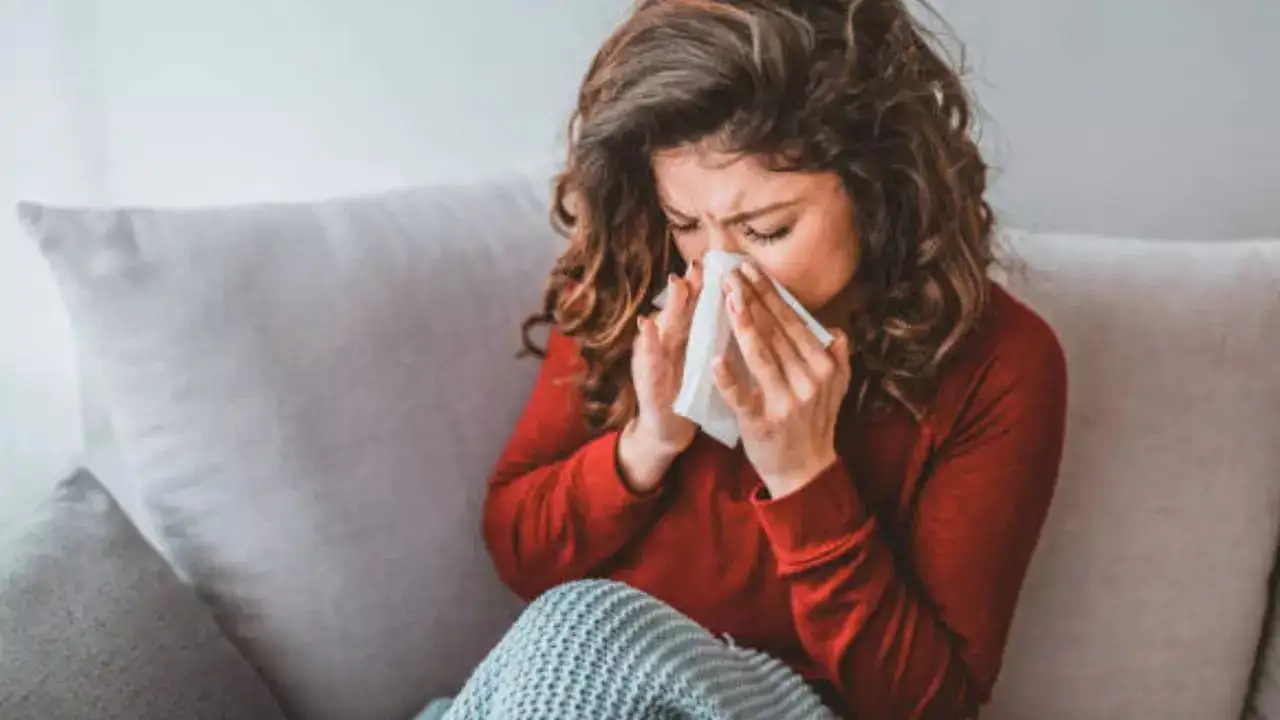
Norovirus, COVID-19, Flu, RSV—How To Avoid Getting Sick This Season (Image Credits: iStock)
Winter brings a surge of illnesses like flu, COVID-19, norovirus, and the common cold. These health problems, while present year-round, become more prevalent in colder months due to increased time spent indoors and the impact of cold, dry air on our immune defences. Hence, it is essential to understand these illnesses and how they spread can help you stay protected. Here we have listed what you need to know to navigate the season and reduce your risk of falling sick.
Recognizing Common Winter Illnesses
Different viruses bring varying symptoms. Knowing the differences can help you identify what you’re dealing with:
- Norovirus: A foodborne illness that spreads through water, contaminated surfaces, or infected food. Symptoms include vomiting, diarrhoea, nausea, and stomach pain lasting 1-3 days.
- Common Cold: Caused by various viruses, the cold triggers symptoms like a runny nose, congestion, cough, sneezing, sore throat, mild headaches, body aches, or a low fever. These symptoms usually clear up in less than a week.
- Flu: Influenza viruses lead to fever, chills, sore throat, cough, runny nose, body aches, headaches, and fatigue. Symptoms hit quickly and can last from a few days to two weeks.
- COVID-19: This virus can cause fever, chills, cough, shortness of breath, congestion, sore throat, fatigue, body aches, headaches, loss of taste or smell, nausea, or vomiting. Symptoms can persist for several days.
- RSV (Respiratory Syncytial Virus): This virus affects both children and adults, causing runny nose, congestion, cough, sneezing, wheezing, fever, and appetite loss. Symptoms typically last 1-2 weeks.
Preventive Measures to Stay Healthy
Taking a few proactive steps can reduce your chances of getting sick:
1. Wash Your Hands Frequently
Good hand hygiene is critical in preventing the spread of most viruses, including norovirus, colds, flu, and COVID-19. Use soap and scrub for at least 20 seconds, especially after using the restroom or handling food. If soap isn’t available, use a hand sanitiser containing at least 60% alcohol, but note that this is less effective against norovirus.
2. Clean High-Touch Surfaces
Surfaces like doorknobs, light switches, and cell phones can harbour viruses. Regularly disinfect these areas using household cleaners with soap or detergent, followed by a sanitiser. For norovirus contamination, use a bleach solution or EPA-recommended disinfectants.
3. Avoid Touching Your Face
Viruses can enter your body through your eyes, nose, or mouth if your hands are contaminated. Keeping your hands away from your face can prevent infections.
4. Wear a Mask in Crowded Spaces
Respiratory viruses spread through droplets from coughing, sneezing, or talking. Wearing an N95 or medical-grade mask in crowded or poorly ventilated areas can reduce exposure.
5. Get Vaccinated
Vaccines are available for some winter illnesses:
- COVID-19: Updated vaccines protect against new variants.
- Flu: Annual flu shots are recommended for everyone aged 6 months and older.
- RSV: Available for people aged 60 and above or those who are pregnant.
Unfortunately, there are no vaccines for norovirus or the common cold.
Boosting Your Immune System
To strengthen your body’s defences against infections:
- Get Enough Rest: Sleep helps your immune system function optimally.
- Stay Hydrated: Drink plenty of water to avoid dehydration.
- Manage Stress: Chronic stress can weaken your immune response.
What to Do If You Get Sick
If you do fall ill, take these steps to recover and prevent spreading the illness to others:
1. Test for COVID-19 or Flu
Early testing can determine the appropriate treatment, such as Paxlovid for COVID-19 or Tamiflu for influenza.
2. Stay Home
Avoid exposing others to your illness. Rest, drink fluids, and use over-the-counter medications like pain relievers to manage symptoms. Humidifiers can also provide relief for congestion.
3. Hydrate for Norovirus
Rehydration is key for norovirus. Drink plenty of water or use oral rehydration solutions. If you experience severe dehydration, such as a dry mouth, reduced urination, or dizziness, seek medical attention.
Get Latest News Live on Times Now along with Breaking News and Top Headlines from Health and around the world.
